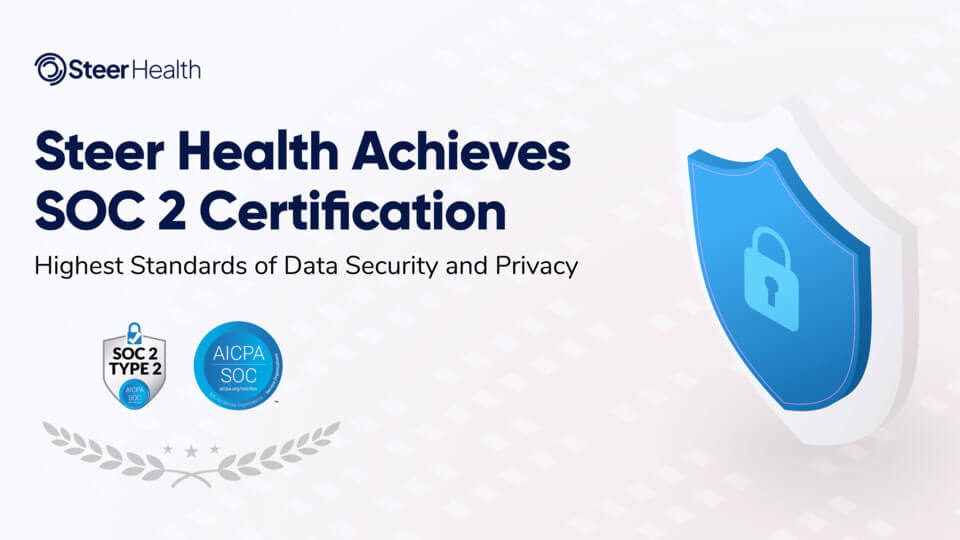Welcome to the Steer Growth Academy, our bi-weekly newsletter on LinkedIn, featuring a free article and a roundup of news and advice on marketing, hiring, healthcare innovation, and technology.
Visit blog.steerhealth.io for our top stories and breaking news. First time seeing this? Please subscribe.
Don’t miss these other updates:
- Learn how ASCs can combat challenges such as high costs, growing patient demand, and staffing challenges by reading our newsletter here.
- We are honored to announce that HackerNoon recognized Steer Health as the runner-up Startup of the Year 2023 in Dallas, TX! Read the interview with Sridhar Yerramreddy here.
- We’re at AAOS 2024! Come meet the Steer team at AAOS booth #6676 to discuss trends and learn how AI and automation can help orthopaedic practices drive success.
Top Story: Empower Patient Communication with Generative AI: The New Patient Contact Center Solution
AI is conflicting for humankind: will it produce a dystopian future for us, or does it offer the prospect of better days ahead? In healthcare, AI has become crucial, revolutionizing strategies and driving innovation. However, a new era of artificial intelligence (AI) is ready to challenge established assumptions about emerging technology.
Generative AI (GenAI) tools have captured the global spotlight and experienced heightened expectations. Why? In a nutshell, GenAI can generate personalized content, improve engagement, and optimize business processes and performance.
As a result of the many advantages this technology brings, recent research highlights a notable increase in GenAI use in healthcare. A November 2023 Deloitte Center for Health Solutions survey indicates that 75% of leading healthcare companies are experimenting with or planning to scale GenAI across their enterprise and 82% have or plan to implement governance and oversight structures for GenAI. Healthcare leaders also see promise for GenAI to improve efficiencies (92%) and enable quicker decision-making (65%).
This technology is revolutionizing the way patient registrations are created and managed by analyzing extensive datasets of medical information, patient histories, and treatment protocols. The result? More precise and personalized content.
One of the main areas where the power of GenAI has been underutilized so far is in patient contact centers.
While electronic patient documentation has already been improving thanks to this technology, challenges of current contact centers include outdated communication channels, a lack of focus on internal communication, staff with limited technological aptitude, and the natural high-pressure environment.
These challenges lead to bottlenecks in areas that are first contact for patients. But with its rapidly evolving capabilities, including managing inbound and outbound phone calls, chatbots, agent assistants, and center analytics, GenAI will transform patient contact centers.
Let’s explore the top three ways that GenAI can help solve patient communication gaps by reducing staff burden, boosting the patient experience, and utilizing analytics for growth strategies.
GenAI call centers significantly reduce staff burnout
Contact centers often face challenges related to high call volumes during peak times or unexpected surges in demand. Therefore, health systems are punctuated by staff shortages, contributing to workforce turnover.
In a Journal of the American Medical Informatics Association study, researchers found that clinicians with the highest volume of patient call messages have almost four times the odds of burnout compared with clinicians with the fewest. And, as a matter of fact, burnout cuts into health organizations’ revenue, costing the healthcare system at least $4.6 billion annually.
Yet, solutions are closer than you think. GenAI is a game-changer by automating staff workflows and tasks, such as documentation, logging call details, and updating patient records.
AI-powered chatbots and virtual assistants can handle simple, routine patient queries 24/7, ensuring that patients can seek assistance at any time. These chatbots allow contact centers to scale their operations without a proportional increase in human agents, resulting in significant cost savings.
Harvard Business Review noted that GenAI solutions also show promise of materially reducing healthcare costs by breaking the division between insurers, hospitals, and consumers. This enables task automation such as claims management, prior authorization, and even payment planning and collections.
Overall, this technology can help to eliminate a massive drag on system efficiency.
GenAI call centers enhance the patient experience
AI contact centers not only reduce workloads and increase efficiency for staff, but they are also redefining call quality for patients. Research by McKinsey & Company shows that AI supports improvements in care outcomes and access to health services, directly benefiting patients.
For example, GenAI call centers automating routine tasks reduces patient waiting times and personalizes interactions. Additionally, smarter self-service options significantly boost the overall patient experience via a more convenient service.
A few self-service use cases for healthcare contact centers include scheduling and confirming appointments, managing prescription refills, providing clinic directions, and facilitating bill payment.
A 2023 report identified a positive correlation between patient satisfaction and AI call center services. About 69% of patients were ‘very satisfied’ with the level of their call centers’ service.
GenAI call centers utilize intelligence and analytics for growth strategies
GenAI can analyze extensive customer interaction data to extract valuable insights. By pinpointing trends, customer preferences, and areas of concern through keywords and topics, AI-powered contact centers can make informed, data-driven decisions to enhance medical services, products, and processes.
These insights play a pivotal role in shaping marketing strategies, guiding product development, refining approaches to patient engagement, and understanding what patients are demanding to better support their journey.
How Steer Health is integrating HIPAA-compliant AI call center solutions for healthcare
The call center market size is projected to reach multi-millions by 2029. This growing industry demand has met Steer Health’s technological advancements and innovative spirit.
Steer Health’s HIPAA-compliant AI call center solutions go beyond sheer chatbot technology to empower patient engagement from start to finish and help healthcare organizations decrease operational costs, reduce staff burden, and mitigate the challenges associated with growing patient demand.
- Steer’s Virtual Voice Assistant: Keep your phone lines free with a self-service technology that helps resolve patient needs faster, improves communications, and cuts costs with automation.
- Steer’s AI Chatbot: Deliver a patient communication experience that’s convenient for them and efficient for you. Our personalized chatbot lives on your site 24/7 to respond to common queries, including booking an appointment or finding directions. Our chatbot has proven to reduce staff workload by 70%.
The best part? It’s all automated.
By offering support through traditional voice calls, every patient, regardless of their access to technology, can receive the help and information they need. This inclusivity is crucial for comprehensive healthcare delivery.
Ready to learn more about Steer’s AI Contact Center Solutions? Click here to get started!









